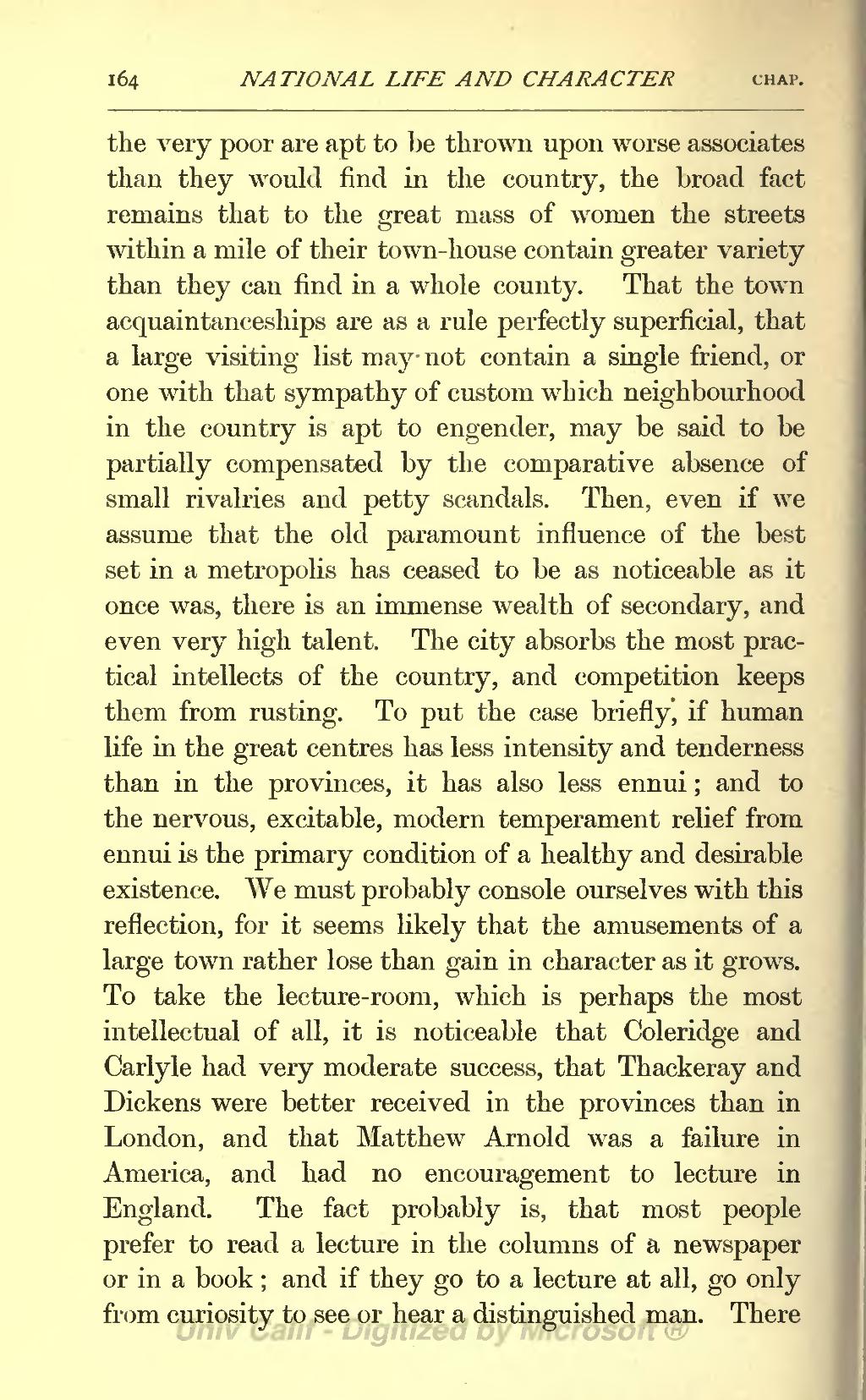the very poor are apt to be thrown upon worse associates than they would find in the country, the broad fact remains that to the great mass of women the streets within a mile of their town-house contain greater variety than they can find in a whole county. That the town acquaintanceships are as a rule perfectly superficial, that a large visiting list may not contain a single friend, or one with that sympathy of custom which neighbourhood in the country is apt to engender, may be said to be partially compensated by the comparative absence of small rivalries and petty scandals. Then, even if we assume that the old paramount influence of the best set in a metropolis has ceased to be as noticeable as it once was, there is an immense wealth of secondary, and even very high talent. The city absorbs the most practical intellects of the country, and competition keeps them from rusting. To put the case briefly, if human life in the great centres has less intensity and tenderness than in the provinces, it has also less ennui; and to the nervous, excitable, modern temperament relief from ennui is the primary condition of a healthy and desirable existence. We must probably console ourselves with this reflection, for it seems likely that the amusements of a large town rather lose than gain in character as it grows. To take the lecture-room, which is perhaps the most intellectual of all, it is noticeable that Coleridge and Carlyle had very moderate success, that Thackeray and Dickens were better received in the provinces than in London, and that Matthew Arnold was a failure in America, and had no encouragement to lecture in England. The fact probably is, that most people prefer to read a lecture in the columns of a newspaper or in a book; and if they go to a lecture at all, go only from curiosity to see or hear a distinguished man. There
Page:National Life and Character.djvu/176
164
NATIONAL LIFE AND CHARACTER
CHAP.
